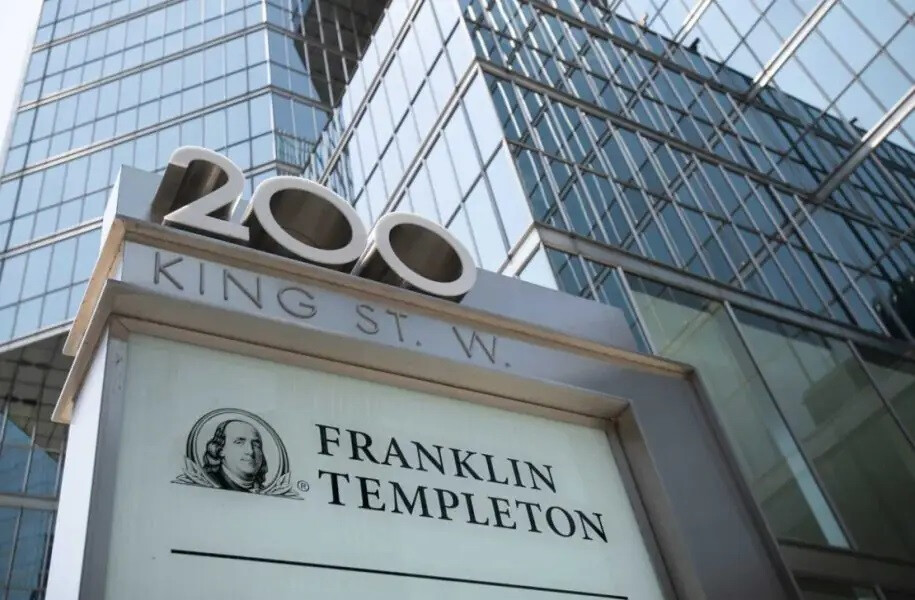
Global asset manager Franklin Templeton is accelerating innovation in the digital asset market by launching a tokenized money market fund in Singapore that is accessible to individual investors with small amounts. This move follows its initial launch of a tokenized money market fund for retail investors in the United States, and is evaluated as significantly lowering the investment threshold with a minimum investment of just $20. Previously, UBS and Wellington Management also launched tokenized funds in Singapore targeting accredited investors. The Monetary Authority of Singapore (MAS) has approved Franklin Templeton Singapore's launch of the 'Franklin OnChain U.S. Dollar Short-Term Money Market Fund'.
Franklin Templeton plans to apply its self-developed blockchain-based integrated transfer agent solution to the fund's operation. The company explained that this will "enhance transparency, security, accessibility, and efficiency." By leveraging tokenization technology, investors will be able to check asset movements and transaction history in real-time, and are expected to benefit from reduced transaction costs and faster processing speeds by bypassing intermediary institutions.
In the United States, Franklin Templeton's tokenized money market fund (FOBXX) has grown to become the second-largest tokenized fund with over $750 million in issuance, following BlackRock's BUIDL. BUIDL's market capitalization is approximately $2.9 billion, but $2.1 billion of this consists of stablecoins. While BUIDL is only available to institutional investors with fewer than 70 investors, FOBXX provides accessibility to both institutional and individual investors, securing around 600 investors. This indicates Franklin Templeton's active targeting of the individual investor segment in the tokenized asset market.
Differences Between the Singapore Fund and the U.S. FOBXX Fund
Franklin Templeton's Singapore fund will also be tokenized and offered to both institutional and individual investors, but it has several important differences from the U.S. FOBXX fund. The investment portfolio of the Singapore fund will mirror the Luxembourg-registered 'Franklin U.S. Dollar Short-Term Money Market Fund (Mdis)', which currently has $1.76 billion in assets under management.
Notably, while Mdis is a typical money market fund, the U.S.-based FOBXX fund invests entirely in government-issued securities. Therefore, the two funds may show differences in terms of risk and return. The Mdis fund has a credit rating distribution of AAA 21%, AA 62.22%, A 15.43%, and unrated 1.35%, whereas the FOBXX fund consists of 100% AAA-rated assets, emphasizing stability. The recent annual returns are similar, with Mdis at 4.77% and FOBXX at 4.73%, and the weighted average maturities are also close at 24.04 days and 24 days, respectively.
There are also regional differences in terms of transparency. The U.S. fund (FOBXX) adopts a full portfolio disclosure method, providing a downloadable list of all assets, while the Luxembourg-based Mdis fund, which the Singapore fund mirrors, only discloses its top 10 holdings. This is interpreted as being due to the slightly different fund regulations in Europe compared to the United States.
Meanwhile, Franklin Templeton also launched a tokenized fund investing solely in government-linked securities in Luxembourg in February. This is seen as part of Franklin Templeton's strategy to actively expand its tokenized asset management business in the European and Asian markets.
Significance and Outlook of Tokenized Money Market Funds
Franklin Templeton's launch of a tokenized money market fund in Singapore is expected to be a significant catalyst for accelerating the convergence of traditional financial assets and blockchain technology. Tokenization technology has the potential to increase asset liquidity, simplify transaction processes, and expand accessibility to small investors. In particular, money market funds are attractive to investors seeking relatively low risk and stable returns, and they are expected to be managed more efficiently and transparently through tokenization technology.
The Monetary Authority of Singapore's (MAS) approval demonstrates Singapore's creation of a favorable regulatory environment for digital asset innovation. In recent years, MAS has actively promoted policies to clarify regulations related to blockchain technology and digital assets and to support the development of related industries. Through the launch of tokenized funds by traditional financial institutions such as Franklin Templeton, Singapore is expected to further strengthen its position as a digital asset hub.
In the future, as more traditional financial institutions launch tokenized asset products and related technologies and regulations develop, the tokenized asset market is expected to grow further. Individual investors will gain access to a wider range of assets with small amounts, and the efficiency and transparency of asset management will increase. It remains to be seen whether Franklin Templeton's latest launch of a tokenized money market fund in Singapore can serve as an important catalyst for promoting the digital transformation of the global asset management industry.
[Copyright (c) Global Economic Times. All Rights Reserved.]



























